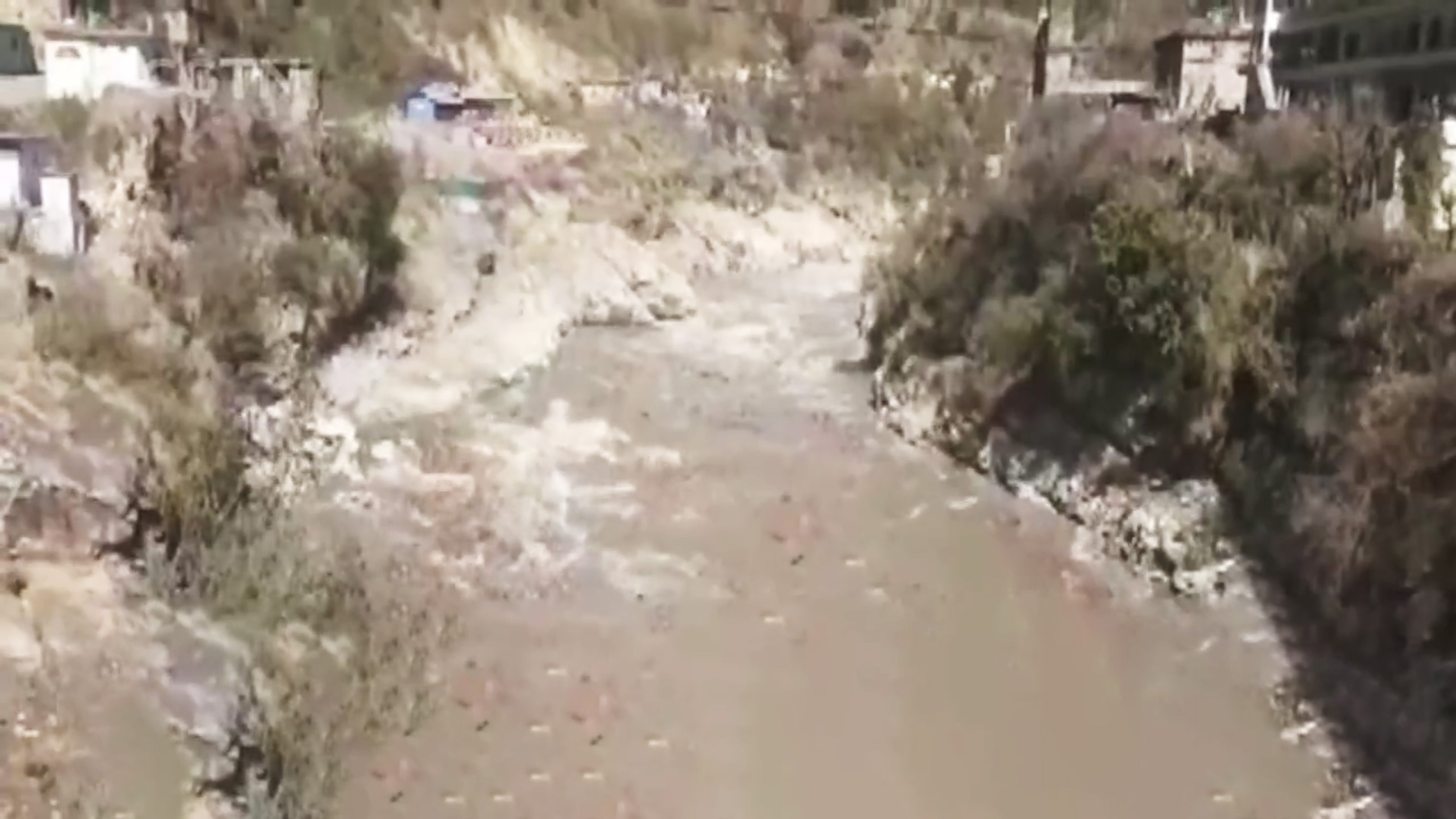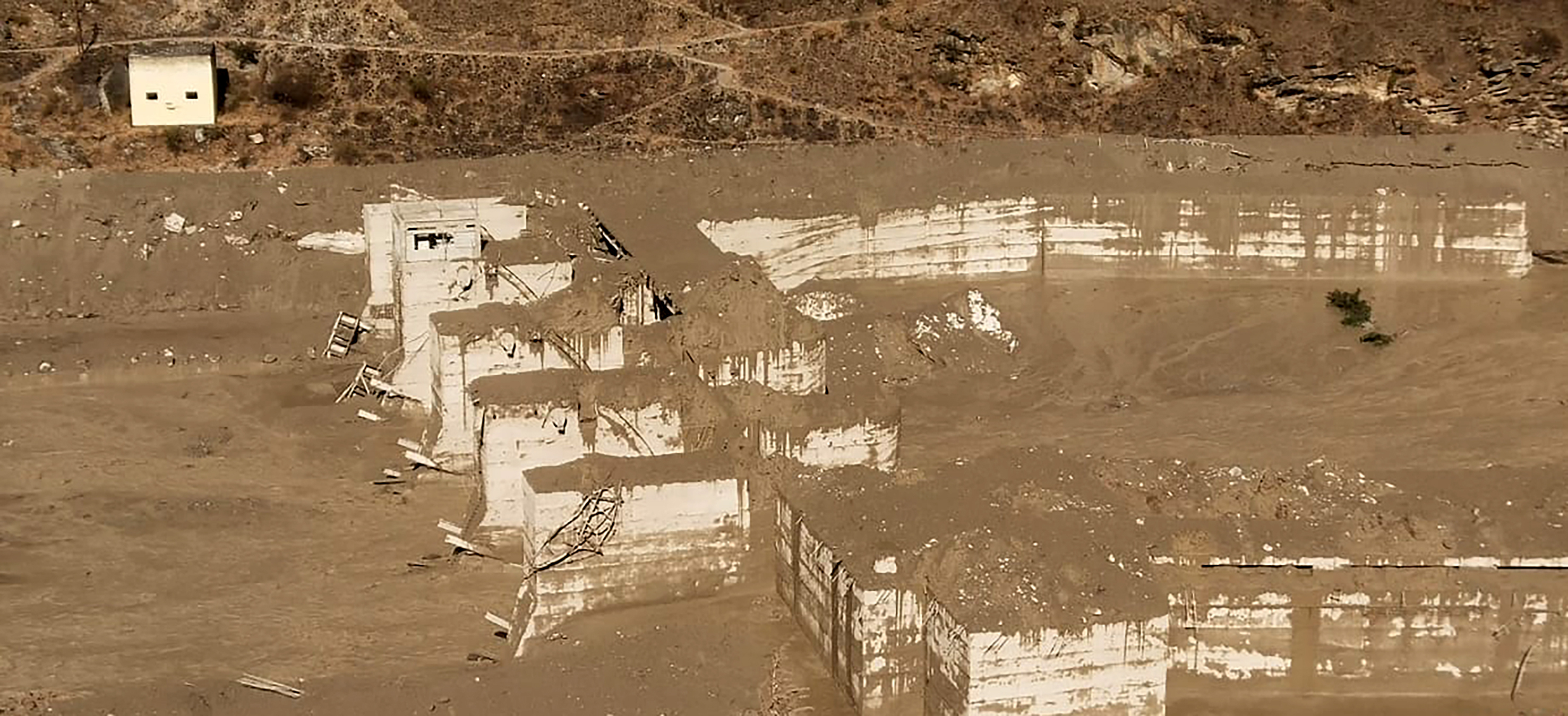01:53

Twenty-six people were confirmed dead on Monday and at least 200 others are still missing after a glacier broke off, triggering devastating flash floods in India, local media reproting citing the officials.
The wall of water barreled down a valley in the northern state of Uttarakhand on Sunday morning, destroying bridges, roads and two hydroelectric power plants.
"There was a cloud of dust as the water went by. The ground shook like an earthquake," local resident Om Agarwal told Indian TV.
Vivek Pandey, a rescue crew spokesperson, said at least 42 workers were trapped in two tunnels at the Dhauliganga project, 16 of whom were rescued from one tunnel, while at least 26 others remained stranded inside the other.
"The rescuers used ropes and shovels to reach the mouth of the tunnel. They dug through the debris and entered the tunnel. They are yet to come in touch with the stranded people," said Uttarakhand's Chief Minister Trivendra Singh Rawat.
With the main road washed away, paramilitary rescuers had to climb down a hillside on ropes to reach the entrance. Several hundred rescue workers resumed their search operation at first light on Monday including national and state disaster response teams, the army and navy diving teams.
Footage from the scene shows muddy, concrete-gray floodwaters tumbling through a valley and surging into a dam, breaking it into pieces with little resistance before roaring on downstream. The flood turned the countryside into what looked like an ash-colored moonscape.
An early survey shows that the dam has been "completely washed off," Indian Air Force sources said on Sunday. Pictures from reconnaissance flights showed two bridges at the entrance of Malari valley and near Tapovan have been washed away as well.

The damaged Dhauliganga hydropower project at Reni Village in Chamoli district after a portion of Nanda Devi glacier broke off in Tapovan area of the northern state of Uttarakhand, February 7, 2021. /AP
The damaged Dhauliganga hydropower project at Reni Village in Chamoli district after a portion of Nanda Devi glacier broke off in Tapovan area of the northern state of Uttarakhand, February 7, 2021. /AP
The flood was caused when a portion of Nanda Devi glacier snapped off in the morning, releasing water trapped behind it, authorities said. It rushed down the mountain and into other bodies of water, forcing the evacuation of many villages along the banks of the Alaknanda and Dhauliganga rivers.
More than 2,000 members of the military, paramilitary groups and police took part in the search-and-rescue operation, including experts in mountaineering, working into the night under bright halogen lights, authorities said.
The rescue work was temporarily suspended due to the rise of the river water late on Sunday, and was resumed hours later, according to Uttarakhand Police.
Uttarakhand Police Chief Ashok Kumar said officials immediately alerted residents in the area and evacuated them to safer places. Downstream, popular tourist spots on the banks of the Ganges were shut, and all boating activities were stopped.
Prime Minister Narendra Modi tweeted that "the nation prays for everyone's safety" in Uttarakhand. UN Secretary-General Antonio Guterres also expressed deep condolences to the victims' families.
Scientists have long known that global warming is contributing to the melting and the breakup of the world's glaciers.
Anjal Prakash, research director and adjunct professor at the Indian School of Business who has contributed to UN-sponsored research on global warming, said that while data on the cause of the disaster was not yet available, "this looks very much like a climate change event as the glaciers are melting due to global warming."
(With input from agencies)

